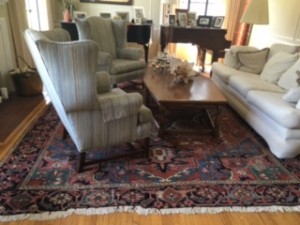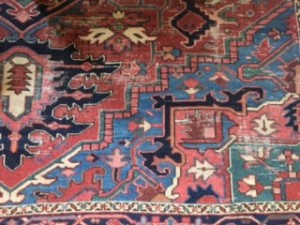MH is a third-generation Irish-American from Battle Creek, MI. He now splits his time between San Francisco, CA and Pasadena, CA, where he lives with his wife and 18-year-old son.
MH talked about the origin of some of his furniture, which has been passed down a couple generations:
“My mom grew up in a poor Irish family during the Great Depression, and they were a big family and she would go on to have a big family herself, which was pretty typical of Irish Catholics at the time…so during the Depression, they were always breaking up these huge estates that had gotten too expensive for families to maintain, and they’d have these estate sales where they’d sell really nice and valuable pieces of furniture, like beautiful wooden tables and dressers, really nice armchairs and Oriental rugs…and so my mom’s family bought a lot of this furniture for dirt cheap at these estate sales. Eventually she grew up and married my dad and the moved to Chicago when they first started having kids, but now they needed to buy larger houses, and they could afford to after the war. But instead of needing to buy new things, they were given some of the old furniture by my mom’s family, so the really nice pieces that originally came from estates went back into really nice houses that my parents had to buy to hold all my brothers and sisters. And now I have some of this pieces in my own living room, and the tables and things are so much better quality than what’s being sold today, because they were build to last for generations like this. So I’ll probably end up passing them on to my own kids, when they buy their own big estates!”
My analysis:
Many families pass down meaningful objects with stories or important family history behind them. While furniture isn’t necessarily what you’d imagine when you picture those sentimental moments, they can still be considered folk objects when you think about the cultural implications – the biggest story for MH is about his Irish-American heritage, and what it meant for his family in America during the Great Depression. “Being Irish from a big family went from being a negative to a positive,” he told me, and today he and his siblings are proud of their roots.


